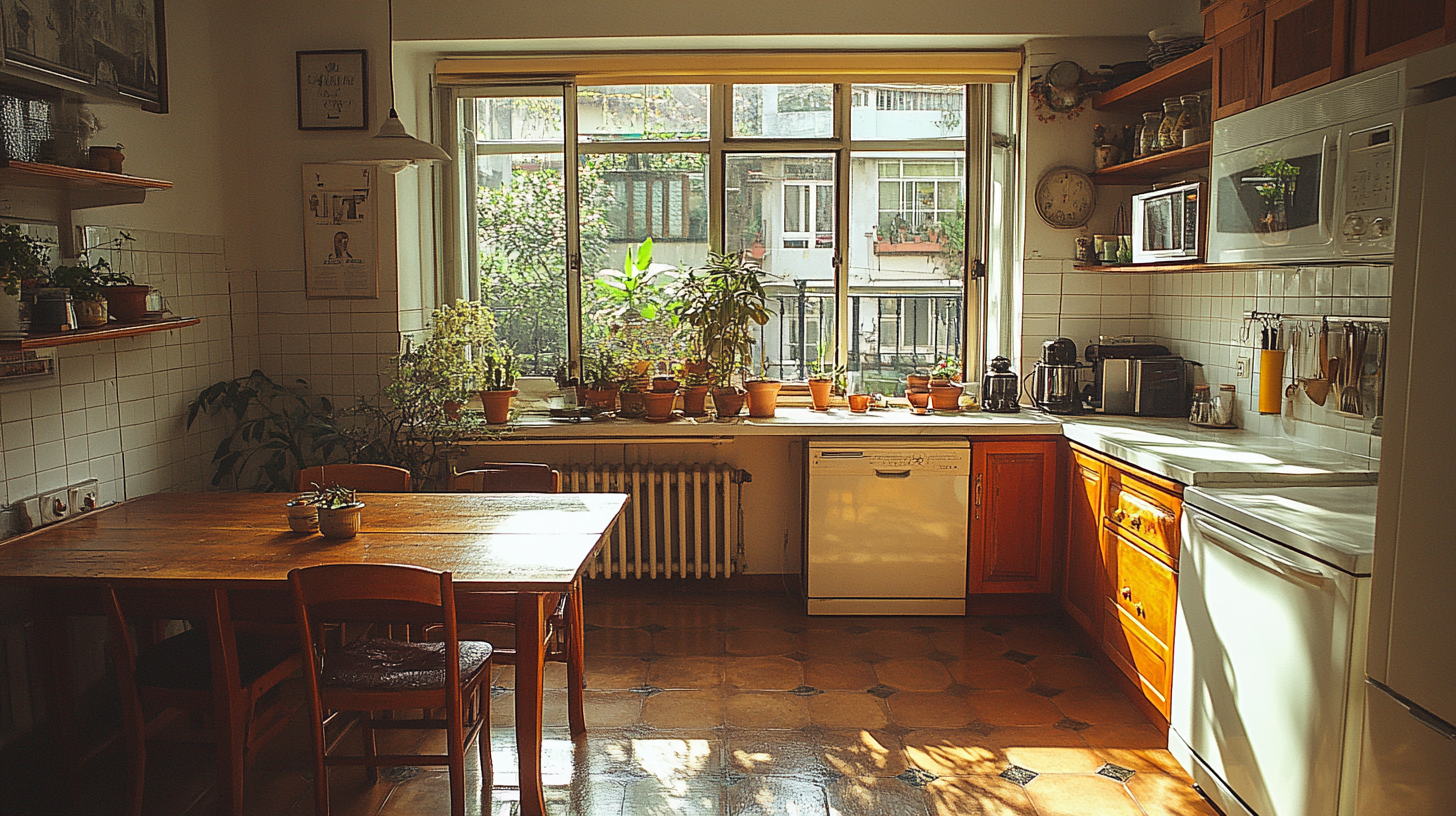Homelessness is a problem that many cities face around the world. Even though governments and organizations are trying to fix it, it’s still a big issue. One Canadian millionaire decided to make a difference in his own town with his money. Here’s his story.
In Fredericton, New Brunswick, Marcel LeBrun, a millionaire entrepreneur, took action to help homeless people in his community. Marcel, who made a lot of money from his successful social media monitoring company, decided to invest $4 million of his own money to build 99 tiny homes for those in need. He didn’t just stop at providing homes; he also created job opportunities with his unique approach. This project is called 12 Neighbours.
After selling his company and gaining a lot of wealth, Marcel wanted to use his money for good. Seeing the homelessness issue in Fredericton, he came up with the idea of a tiny home community to give homeless people a new start. He named his project 12 Neighbours and aimed to build a gated community with 99 homes and an enterprise center. This community offers both housing and job opportunities, giving homeless people a chance to rebuild their lives.

Homelessness is a big issue in New Brunswick, with about 1,600 people experiencing it in a single day last year. In bigger cities like San Francisco, Los Angeles, and New York in the United States, the number of homeless people is much higher. Marcel LeBrun saw a chance to make a difference and decided to help those struggling with homelessness.
Marcel’s project, 12 Neighbours, is not just about building tiny homes. He wants to create a supportive community for people. The tiny homes he’s building are more than just places to stay. They are fully-furnished with kitchens, living areas, bedrooms, and full bathrooms. They even have solar panels on the roofs. Marcel sees himself as a community builder, aiming to provide a better life for those in need.

To make his vision a reality, Marcel LeBrun set up a factory where skilled volunteers help build the tiny homes. Using modern techniques, the factory can produce one tiny home every four business days. Once a home is built, it is carefully placed on concrete blocks to form the foundation of the community.
Marcel believes that owning a home is important because it gives people a sense of responsibility and stability. By allowing people who have experienced homelessness to own their own homes, the 12 Neighbours project aims to empower them and create a supportive community.

Besides providing homes, Marcel LeBrun’s project also focuses on creating job opportunities for the residents. The 12 Neighbours community includes an enterprise center with a coffee bar and a silk printing business, both run by the residents. This helps generate income and encourages residents to interact with the wider community.
Like any big project, 12 Neighbours has faced criticism. Some people think it’s better to reintegrate homeless individuals directly into society rather than keeping them together in one place. However, Marcel understands these concerns and has taken steps to ensure the community is safe and supportive.
Marcel explained, “Building a few homes is just as complicated as building many, and we wanted to make a real impact on homelessness in Fredericton. If we want to make a meaningful difference, we need to build houses. If I take someone who’s been living outside and put them in a luxury apartment, they might not succeed because it’s not their community or environment.”

Marcel LeBrun knows how important safety is, so he has included top security features in the 12 Neighbours community. There are gated entrances and advanced surveillance systems to ensure residents feel safe and protected.
LeBrun mentioned that some residents face challenges when they first move in. He explained, “When someone moves into a house, they might have others trying to take advantage of them. They need to learn what it means to manage their own space and decide who they let in and out.”
One of the main goals of 12 Neighbours is to build a strong sense of community both inside and outside its gates. LeBrun wants to create a place where residents and the people of Fredericton can come together. The community has a coffee bar and a personalized printing business to encourage interaction and understanding.
LeBrun told CBC, “I see myself as a community builder. We’re not just building a small community; we’re helping to make our city better.”
Marcel LeBrun’s project to build 99 tiny homes in Fredericton, New Brunswick, is a great example of using personal success to help others. Through 12 Neighbours, he has not only provided homes for those in need but also created job opportunities and a supportive community. His efforts have given hope to many and inspired others to make a difference.
Old Woman Brought Son’s Favorite Pastry to His Grave & Found Note Saying ‘Thank You’ upon Her Return – Story of the Day

For Nancy her son Henry was everything, she never imagined her life without him. It had been 23 years since the horrible accident that took Henry’s life. Every year on that day, she took his favorite pie to his grave to honor his memory. But this year, everything was about to change.
For 23 years, Nancy, now 61, never missed a single day on this date. She baked her late son’s favorite pie and took it to his grave every year since.
The pie, a simple yet delicious apple and cinnamon creation, had been Henry’s favorite since childhood.
The scent of apples and cinnamon brought back memories of when Henry was little, running into the kitchen, his eyes lighting up at the sight of the pie.

For illustration purposes only. | Source: Midjourney
It was his favorite dessert, and baking it had become a tradition they both cherished.
Since Henry’s tragic accident at 17, this ritual had been Nancy’s way of keeping his memory alive.
It gave her a sense of connection to him, like she was still doing something special for her boy. Losing him had been the hardest thing she had ever gone through. The pain of that day never left her.
Even though the years had passed, her grief remained, only softened by time and the small comfort this tradition brought her.

For illustration purposes only. | Source: Midjourney
On this particular day, just like every year before, Nancy carefully carried the freshly baked pie to the graveyard.
The weight of the dish felt heavier, as it always did when she walked toward Henry’s resting place. The grave was neat and covered in flowers, a sign of how much he was still loved.
The stone had become smoother over the years, as she had often run her fingers over it, lost in her memories.
Nancy knelt, placing the pie gently on the gravestone. Her heart ached as she began to speak, her voice quiet, as though Henry might somehow hear her.

For illustration purposes only. | Source: Midjourney
“Henry, I hope you’re at peace, my love. I miss you every day. I baked your favorite pie again. Remember how we used to bake it together? You’d always sneak a taste before it was done.”
She smiled, but her eyes were misty with tears. “I wish we could do that one more time.”
The familiar sorrow welled up inside her, but Nancy had learned over the years to push through the tears.

For illustration purposes only. | Source: Midjourney
She wiped her eyes quickly and managed a small smile. After a few more moments of silence, she kissed her fingers and touched the top of the gravestone as she said her quiet goodbye.
Then, with a heavy but comforted heart, she turned and walked away, knowing she’d be back next year, just like always.
The next day, as part of her routine, Nancy made her way back to Henry’s grave to clean up the remains of the pie.

For illustration purposes only. | Source: Midjourney
Usually, by the time she returned, the pie was either untouched or spoiled by the weather, a quiet reminder of her son’s absence.
She had always found it a bittersweet comfort, knowing the pie stayed where she left it as if waiting for him.
But today, as she approached the grave, something felt different. Nancy’s heart skipped a beat when she saw that the plate was clean—completely empty. For a moment, she stood frozen in disbelief.
Then, she noticed something else. Resting on the plate was a small piece of paper, folded in half.

For illustration purposes only. | Source: Midjourney
Nancy’s hands trembled as she picked up the note. Her breath caught in her throat as she unfolded it.
The handwriting was shaky, as though whoever had written it had struggled to form the letters. The simple words read: “Thank you.”
Her heart pounded with confusion and anger.
“Who would take Henry’s pie?” she muttered under her breath, clutching the note tightly. “This was for my son. No one had the right to touch it!”

For illustration purposes only. | Source: Midjourney
Her private ritual, her way of honoring and remembering her son, had been invaded by a stranger.
She felt violated, as if someone had stolen a piece of her grief.
With her emotions swirling—part outrage, part confusion—Nancy left the cemetery, her mind set on finding the person who had taken her son’s pie. She had to know who had done this, and why.
Determined to catch the culprit, Nancy decided she would take matters into her own hands. She couldn’t let someone continue to disturb the way she honored Henry. So, she devised a plan.

For illustration purposes only. | Source: Midjourney
That night, she baked another of Henry’s favorite pies, the same apple and cinnamon recipe she had been making for over two decades.
The next morning, with renewed resolve, she placed the freshly baked pie on Henry’s grave, just like before, but this time she wasn’t leaving.
She found a large oak tree nearby and hid behind it, close enough to see the grave but far enough to not be noticed.

For illustration purposes only. | Source: Midjourney
The warm aroma of the pie drifted through the air, filling the quiet cemetery.
Time passed slowly as Nancy watched and waited, her heart racing in anticipation.
An hour later, she spotted movement. A small figure cautiously approached the grave. Nancy squinted, leaning forward to get a better look.
It wasn’t the greedy thief she had imagined. No, this was something entirely different.

For illustration purposes only. | Source: Midjourney
A young boy, no older than 9, with ragged clothes and dirt smudged on his face, moved toward the pie with hesitant steps.
Nancy’s heart tightened as she watched him. The boy didn’t immediately take the pie.
Instead, he knelt by the grave and reached into his pocket, pulling out a small scrap of paper and a dull pencil. His hand trembled as he carefully scribbled something on the paper, his brow furrowed with concentration.
It was clear the boy struggled with writing, but he took his time, making sure each word was legible.

For illustration purposes only. | Source: Midjourney
Nancy’s heart softened as she saw him write “Thank you” on the paper, just like before. He wasn’t a thief. He wasn’t someone disrespecting Henry’s memory. He was just a hungry child, grateful for the kindness of a pie left behind.
The anger that had once consumed Nancy melted away in an instant. She realized this boy wasn’t stealing; he was surviving. He was in need, and her son’s favorite pie had somehow brought him comfort.
As the boy began to pick up the pie, his small hands shaking, Nancy stepped out from her hiding spot.

For illustration purposes only. | Source: Midjourney
The rustle of leaves under her feet made him freeze, wide-eyed. Startled, he dropped the pie, and it tumbled onto the grass. His face paled, and he backed away, looking terrified.
“I’m sorry, I’m really sorry!” the boy cried, his voice trembling with panic. “I was just so hungry, and the pie was so good. Please don’t be mad.”
Nancy’s heart softened instantly. The sight of him—thin, dirty, and scared—erased any trace of anger she had felt before.

For illustration purposes only. | Source: Midjourney
She knelt beside him, speaking gently, her voice as comforting as she could make it. “It’s alright, sweetheart. I’m not mad at you, Where are your parents?” she said, her tone soothing. The boy stayed silent and shook his head. “What’s your name?” Nancy asked another question understanding that the boy had nowhere to go.
“Jimmy,” he muttered, still avoiding her eyes, ashamed of what he had done.
“Well, Jimmy,” Nancy smiled softly, trying to reassure him, “it’s okay. You don’t have to steal pies. If you’re hungry, all you had to do was ask.”

For illustration purposes only. | Source: Midjourney
Jimmy looked up at her, his lips quivering as he tried to speak. “I didn’t mean to steal,” he said, his voice small and shaky. “I just… I don’t get to eat much, and that pie was the best thing I’ve ever had.”
Nancy’s heart ached for him, her mind flooded with thoughts of how different this boy’s life must be.
The hunger in his eyes reminded her of her own son, Henry, when he would eagerly wait for that first bite of her freshly baked pie.
But Henry never had to worry about where his next meal would come from. Jimmy, on the other hand, looked like he had been living with hunger for a long time.

For illustration purposes only. | Source: Midjourney
“Come with me,” Nancy said after a moment of thought. She stood up and reached out her hand to him. “I’ll bake you a fresh pie, just for you.”
Jimmy’s eyes widened in disbelief, as if he couldn’t trust his own ears. “Really?” he asked, his voice filled with a mix of hope and doubt.
Nancy nodded, her heart filled with a strange but comforting warmth. “Yes, really. You don’t have to be afraid.”
Slowly, Jimmy reached out and took Nancy’s hand.

For illustration purposes only. | Source: Midjourney
She led him back to her home, the boy walking beside her in silence, his eyes darting around as if he wasn’t sure if this was all real. Nancy’s heart swelled with the thought of what she was about to do.
Baking had always been her way of expressing love, and now, after years of baking for a son she could no longer see, she was about to bake for someone who truly needed it.
When they reached her cozy kitchen, Nancy set to work, rolling out the dough, slicing the apples, and adding the perfect amount of cinnamon—just as she had done so many times before.

For illustration purposes only. | Source: Midjourney
Jimmy watched her quietly from the corner of the kitchen, his eyes wide as he followed every move she made.
The smell of the pie began to fill the room, warm and comforting, like a hug from a long-lost friend.
Once the pie was baked, Nancy placed it in front of Jimmy. “Here you go, sweetheart,” she said softly.
“This one’s all for you.”
Jimmy hesitated for a moment, as if he couldn’t believe what was happening. But then he grabbed a slice and took a bite. His face lit up with joy, his eyes sparkling as he chewed.

For illustration purposes only. | Source: Midjourney
“This is the best pie I’ve ever had,” he said, his mouth still full. He ate with such happiness that it brought tears to Nancy’s eyes.
She watched him in silence, thinking about how something as simple as a pie could bring so much comfort to someone.
As Jimmy devoured the warm slices with obvious delight, Nancy couldn’t help but think of Henry.
She had always dreamed of seeing her son eat his favorite pie again, of watching him enjoy it the way he used to when he was a child.

For illustration purposes only. | Source: Midjourney
But now, in some strange and unexpected way, she was sharing it with another boy who needed it just as much.
Watching Jimmy eat, Nancy felt a deep sense of peace wash over her. Perhaps this was how it was meant to be.
Maybe fate had brought Jimmy into her life for a reason. By feeding him, by offering him kindness when he needed it most, she was honoring Henry’s memory in a way she had never imagined.
For the first time in years, Nancy felt that her grief had led her to something beautiful—a connection, a purpose that gave new meaning to her life.

For illustration purposes only. | Source: Midjourney
Maybe, just maybe, this was Henry’s way of sending her a message—that love and kindness should always find their way back to those in need.
Nancy smiled as she watched Jimmy finish the last slice of pie, her heart full of warmth and gratitude.
She had found an unexpected connection in the most unlikely place, and it filled her soul in a way that nothing else had in years.
Tell us what you think about this story, and share it with your friends. It might inspire them and brighten their day.



Leave a Reply